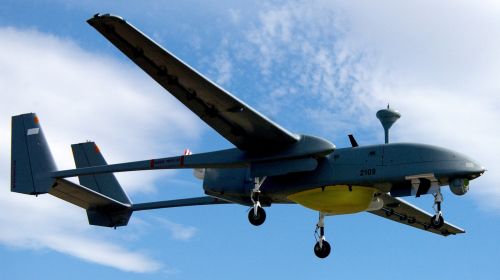
You've got to hand it to Sen. Rand Paul (R-Ky.): He has become one of the foremost members of Congress fighting for Americans' privacy rights, and has worked doggedly to shed light on how the government is using new technologies to monitor us without our knowledge or consent. Given how difficult it is to get federal law enforcement agencies to comply with their obligation to disclose documents to the public under the Freedom of Information Act ÔÇö I spend a lot of my time working on just that ÔÇö it is exceedingly valuable to have someone of Sen. Paul's stature pushing for greater transparency.
Earlier this summer, Sen. Paul sent the FBI two letters asking about its use of drones for surveillance. The FBI's latest is a mixed bag.
On the one hand, some parts of the FBI's response are reassuring. It specifically states:
- "None of the [drones] used by the FBI are armed with either lethal or non-lethal weapons."
- "The FBI does not use [drones] to conduct "bulk" surveillance or to conduct general surveillance not related to an investigation or assessment."
It's good to know that the FBI has "no plans" to shoot bullets or bean bags at Americans using an unarmed robot flying in the sky. It would be even better if the FBI were to commit to notifying Congress and the American people if its plans change, to ensure a debate about whether this is an appropriate way to conduct policing of American citizens inside the United States.
It's also reassuring to know that, at least for now, the FBI is not conducting generalized surveillance using drones. Limiting the use of this technology to specific investigations has the practical impact of limiting opportunities for abuse. This is another advantage of the fact that currently, the Federal Aviation Administration must sign off on all drone flights. Practically speaking, the need to go through that bureaucratic process should help limit the use of this technology to when law enforcement agencies have a strong need for it.
Other parts of the letter, unfortunately, devolve into the meaningless bureaucratic doublespeak we see too often from government agencies responding to queries from members of Congress. Most significant is this passage:
- "Without a warrant, the FBI will not use [drones] to acquire information in which individuals have a reasonable expectation of privacy under the Fourth Amendment. To date, there has been no need for the FBI to seek a search warrant or judicial order in any of the few cases where [drones] have been used."
This sounds like it means something, but it does not. In general, the Fourth Amendment prohibits the government from conducting searches that violate a person's "reasonable expectation of privacy" without a warrant based on probable cause. But what's a "reasonable expectation of privacy"? When it comes to new technologies such as drones, the federal courts (which are the ultimate arbiters of the meaning of the Fourth Amendment) haven't said. The technology is too new.
What would be meaningful is if the FBI were to explain under what circumstances the FBI believes that the use of drones violates the Fourth Amendment. Sen. Paul reached the same conclusion, quickly firing off a stating that "it is important that you clarify your interpretation of when an individual is assumed to have a reasonable expectation of privacy."
Under what circumstances does the FBI believe the use of a drone could violate a reasonable expectation of privacy? Does it matter whether the drone is flying over a public street or over private property? Does it matter whether the drone is being used to engage in surveillance of a constitutionally protected space such as the inside of a house? What if the drone is using sensory-enhancing technology such as thermal imaging? Does the Fourth Amendment prohibit the FBI from engaging in thermal imaging of a house without a warrant?
In October of last year, before Sen. Paul began asking questions about the FBI's use of drones, the └¤░─├┼┐¬Ż▒Żß╣ű filed a FOIA request seeking the disclosure of records addressing many of the same pages. The FBI is legally obligated to respond within 20 days. Here we are, nine months later, and the FBI has yet to disclose a single responsive document.

